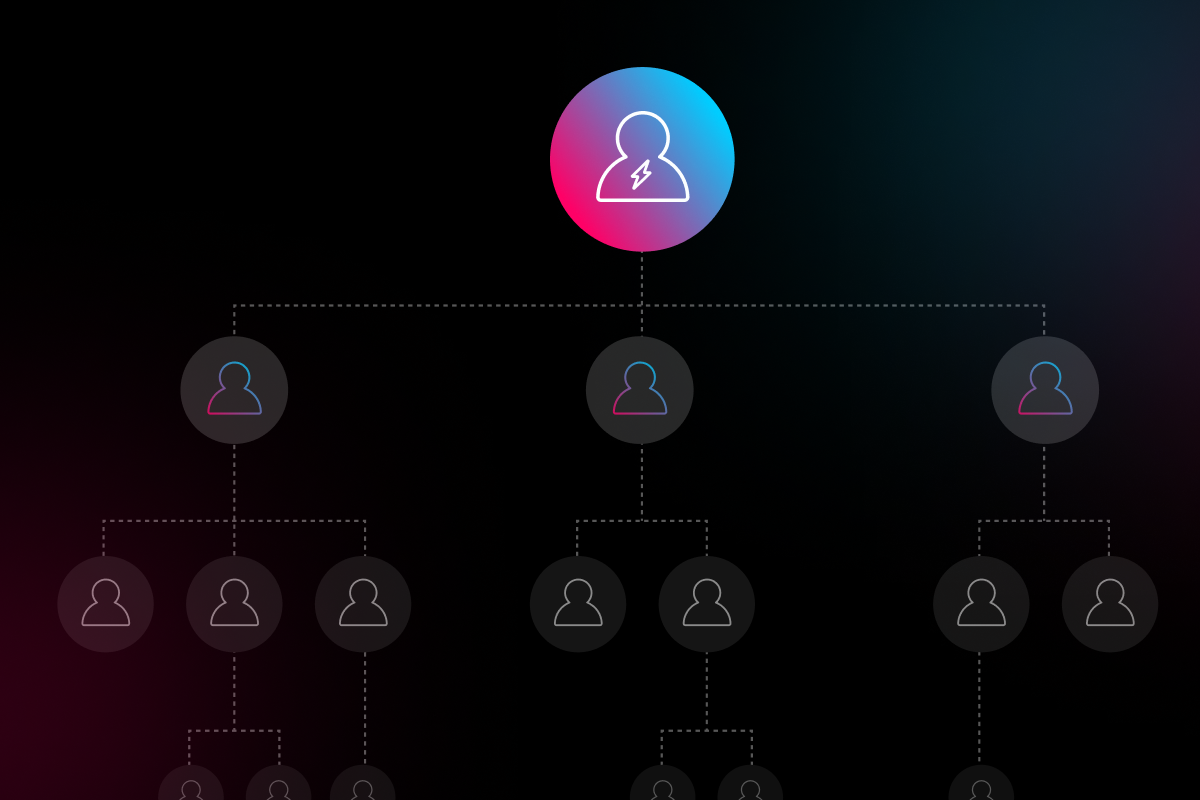
In today’s business environment, your digital network is the heart and soul of your business. Companies of all sizes rely on their network for everything from internet access to cybersecurity. For your business to remain competitive, you need effective network management. In this article, we discuss network management, its importance, and what to look for in a network management tool or managed network services.
What is Network Management?
Network management is the process of securing, maintaining, and optimizing your data network. Today’s network management systems use both hardware and software components that continuously collect data, which businesses can analyze and use to improve network reliability, security, and performance.
5 Types of Network Management
When it comes to a network management system, there are five essential elements businesses must address to implement an effective IT management strategy. These types of network management include:
1. Fault Management
The most fundamental element to network management is fault management. Fault management refers to maintaining the network infrastructure and protecting it from threats. It is the process of detecting, documenting, and repairing any errors that interfere with your network system. For network management to be effective, you need protocols in place to identify potential problems and alert appropriate IT personnel. Once an issue is reported, your IT department can identify the threats and provide insight into a long-term solution.
2. Configuration Management and Maintenance
Modern networks contain numerous routers, modems, servers, and switchers, among other components. IT managers need to track not only the current network equipment but also any configuration changes to the system. Many issues can arise when organizations do not focus on configuration management and maintenance, which is why there needs to be an IT team that monitors and records any hardware and software adjustments in the system. Although your IT personnel can monitor the changes manually, it may be wise to invest in configuration management software to help streamline the process.
3. Account Management
Bookkeeping is essential for any business, which is why you need to track all account documents and utilize that information to assist your business operations. Account management can help you track different departments, see which ones consume the most bandwidth, and identify trends or inefficiencies in the system. You can use this information to assist cost management and address any areas of concern.
4. Performance Management
Performance management ensures all business networks operate at optimal efficiency. Its accuracy relies on network service quality statistics and other key performance indicators. All of this information is fed into an SNMP management system, which identifies when service levels drop beneath an acceptable level of proficiency. To ensure performance management runs successfully requires close and accurate monitoring from your IT personnel.
5. Network Security Management
Perhaps the most important element to a network management system is how you manage network security. Security management involves everything from network authentication to authorization, vulnerability management, firewall configuration, auditing, intrusion detection, and threat management. Network security management requires ongoing analysis of data and information, and organizations can use these insights to implement security policies. Security breaches can be catastrophic for businesses, which is why they should closely monitor their network security.
What is a Network Management Tool?
A network management tool allows you to centrally monitor your entire network to proactively identify and resolve issues as they arise. This tool (or system) is essentially designed to simplify the job of network management by providing visibility into all of the individual components in your infrastructure, as well as how they interact.
The right network management tool also equips you to perform remote configurations across your network and devices to ensure they can connect and communicate appropriately. In growing organizations, this capability is crucial to ensure business security and consistent uptime.
4 Advantages of a Network Management System
The entire reason why IT departments have network management systems is to ensure all components in your network infrastructure run smoothly and efficiently, which ultimately helps your company’s bottom line. There are numerous benefits to network management. Some of the advantages of a network management system include:
1. Improves Network Efficiency
When you monitor your network, you learn how to address areas of concern and fix any problems that arise or are currently present, which makes your network more efficient. With a more efficient network, it is far less likely it will negatively affect your employee’s productivity and performance. Downtime can cost your business thousands every hour, which is why you want your network operating at maximum efficiency throughout the workday.
2. Improves Network Security
When you have a network management system in place, it is much easier to identify security threats and respond to them before they create a prolonged impact on your organization. Network management ensures you have regulatory and compliance standards in place that protect both your employees and company.
3. Lowers Costs
By understanding the inefficiencies in your network, you can provide solutions that not only make it more efficient but can even lower operational costs. There could even be a compound effect where you decrease costs and increase productivity after you implement solutions.
4. Gain a Holistic Understanding of Your Network Performance
One of the benefits of a network management system is it gives you a holistic understanding of your network performance. When you better understand your network, you know its strengths, weaknesses, and can enact policies that address any issues present.
What to Look for in Network Management Software
It can be both expensive and time-consuming to implement an effective network management system. However, there are ways to make the process a little easier. For instance, you want to create an inventory of your network components and develop a control process plan to monitor and track all of these processes. Likewise, you want alert monitoring in place so you are immediately aware of any negative changes in the system. Lastly, you need to regularly review the data recorded from the system, and update any policies as changes occur.
What are Managed Network Services?
Network management as a service is an external resource that remotely takes care of network management for your business. By outsourcing this responsibility to a network management company, you can gain access to a team of dedicated experts, while alleviating the workload of in-house IT resources.
Managed network services typically take a more proactive approach to maintaining your network, meaning potential issues are caught and rectified before they have an impact on your business operations. As well as making recommendations on how you can improve performance, network management companies can also carry out day-to-day troubleshooting, perform updates to firmware, renew licenses, and perform general audits and assessments of your network infrastructure.
How Electric Can Help With Network Management
At Electric, we understand that your business is only as powerful as the network it runs on. Our team of experts are here to ensure your network remains secure and functioning optimally with full-scale monitoring and management. If you would like to learn more about Electric, the services we provide, and how we can help with your network management, feel free to contact us today!



